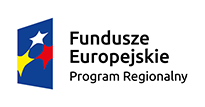
On 2–4 June 2025 the Krakow Meetings on Russian Philosophy and the Northwestern University Research Initiative in Russian Philosophy, Literature, and Religious Thought will sponsor a conference on Lev Shestov (Schwarzman) (1866–1938) and religious existentialism in Russian and European thought. The conference will be held at the Pontifical University of John Paul II in Krakow, Poland.
The Polish poet Czesław Miłosz used the phrase “the purity of despair” to characterize Shestov’s philosophy. He was echoing the words of Nicolas Berdyaev, who wrote that “for Lev Shestov human tragedy, the terrors and sufferings of human life, the experience of hopelessness were the source of philosophy.” In 1900 Berdyaev and Shestov became lifelong friends. After the Russian Revolution they settled in Paris, where they became the main Russian founder-philosophers of “religious existentialism.” Shestov’s book Kierkegaard and Existential Philosophy (1936) appeared two years before Karl Jaspers’s Philosophy of Existence and several years before the French Catholic thinker Gabriel Marcel coined the term “existentialism” in 1943. Shestov’s preoccupation with existentialist themes began with his early works on Tolstoy, Dostoevsky, and Nietzsche (1900, 1903). It culminates with his last book, Athens and Jerusalem (1938), which contrasts biblical faith and revelation to Greek philosophical rationalism, with its ordered cosmos, made comprehensible by necessary, universal laws. For Shestov, the autonomy of reason actually stood for the autocracy or tyranny of reason. He thought it was limiting and subjugating, while faith was expansive and liberating. His searing critique of rationalism opened the way for an existential philosophy based on concrete personal experience. For him, the center of that experience was God–the God of Abraham, Isaac, and Jacob, not the God of the philosophers (the Absolute). Perhaps the most precious and encompassing of his themes was “faith and freedom”.
Shestov’s work lay at the crossroads of some of the main directions in contemporary European thought: existentialism (in its religious and atheistic forms), phenomenology, and personalism. His interlocutors included Husserl, Heidegger, and Buber. Papers are invited on any aspect of his legacy and on his Russian and European contexts and connections.
Working languages
English and Russian


The Library of the Pontifical University of John Paul II in Krakow



